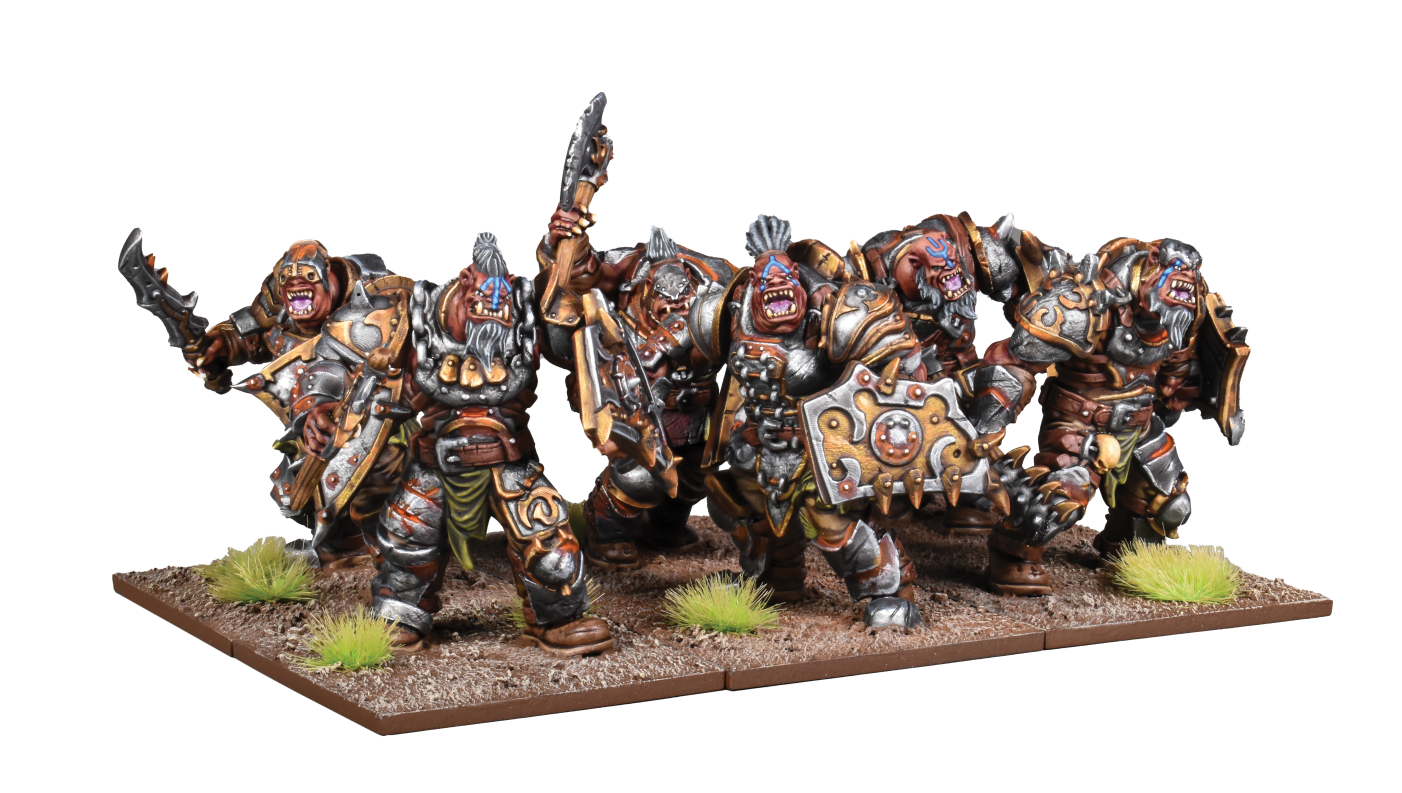Kings of War – How To Play Series – Movement Phase
11th Oct 2022
Martin Thirlwell
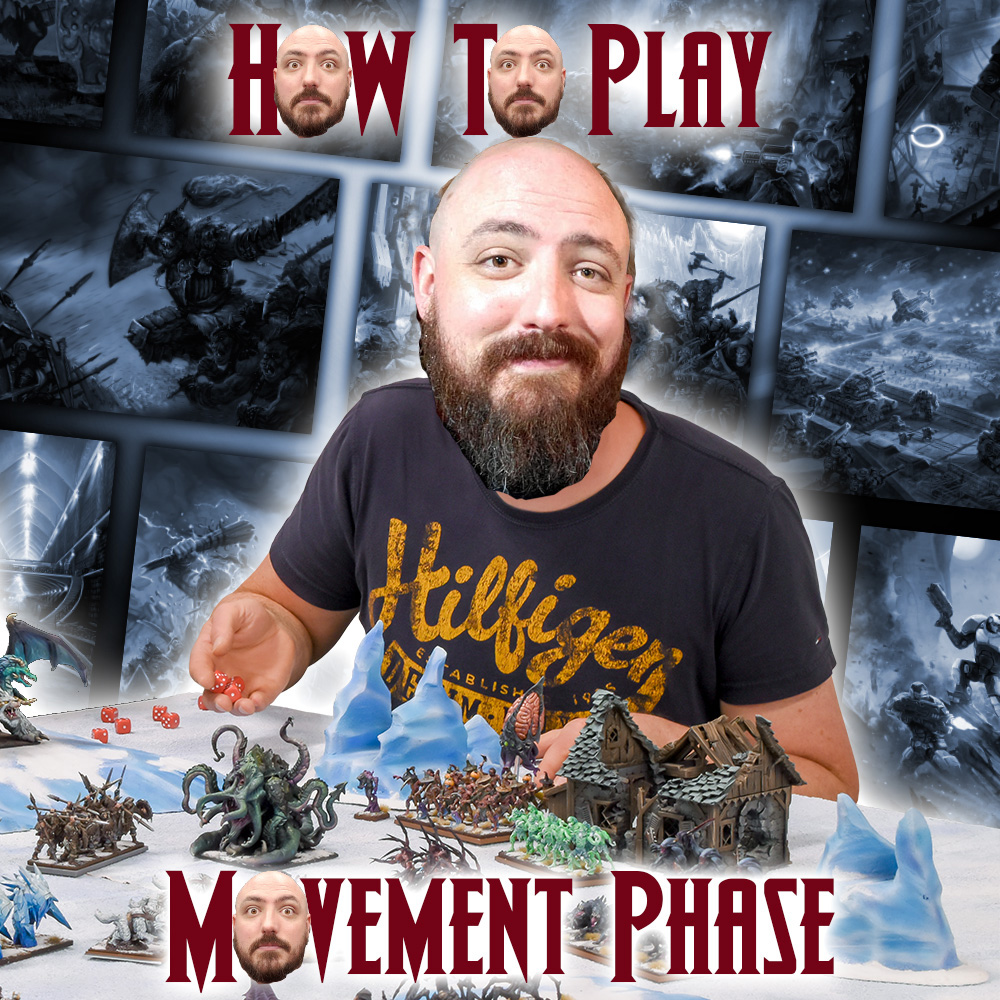
Movement is hands down the most critical element of gameplay. Your planning and positioning all revolve around this concept. The key to executing a proper strategy revolves around movement, especially with scenario play. In today’s blog, we will go over the various movement orders, special types of movement, and how terrain affects your units.
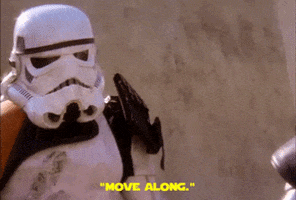
Important Concepts
When moving your units, it’s important to understand how you need to manipulate their bases for proper gameplay. Units in Kings of War have two spots within the base that you should always consider.
The first is the center of the base. Pivoting is how units turn in game and this is always done around the center of the unit.
The second is the unit’s leader point. This is the very center of the front facing. It determines where you draw line of sight and thoughtful positioning of it will ensure you can declare proper charges.
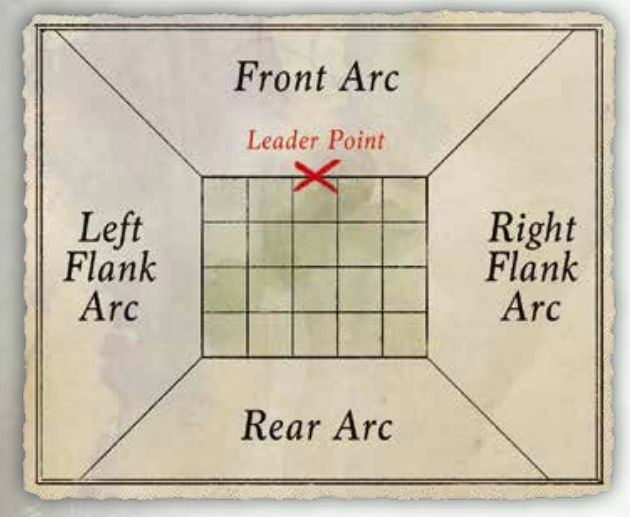
The Core Movement Orders
Each time a unit is activated, you must choose one of the following Orders to give it in the Movement Phase. Pivoting during a movement Order is explicitly stated in the Order. If it doesn’t say it, you must travel straight.
- Halt. Very simply, the unit doesn’t move!
- Change Facing. This is similar to a Halt as the unit remains stationary, but can pivot around its centre to face any direction.
- Advance. The unit can move straight forward, up to its Speed in inches. At any point during this Move Order, the unit can also make a single pivot of up to 90 degrees from the original facing.
- Back. The unit moves straight backward at up to half it’s Speed.
- Sidestep. The unit moves directly sideways to either it’s left or right flank up to half its Speed, in inches.
- At the Double. The unit can move straight forward, up to twice its Speed, in inches.
- Charge. Moving to engage the enemy. This move is more complex than the rest and requires further breakdown. In order to declare a Charge, the following conditions must be met.
- The target unit is at least partially in your front arc.
- A Line of Sight can be drawn from your Leader Point to the target unit.
- The distance between any point on your unit’s front facing and the closest point of the target is less than or equal to double your unit’s Speed. Importantly, the charging unit can travel further than their doubled Speed stat as long as the distance when the charge is declared meets this requirement.
- The charging unit has enough space to physically fit into contact with the target.
- The unit may pivot once during this move, up to 90 degrees, at the earliest possible point during the move in order to make contact, while pivoting the smallest amount possible.
- Charging units should always take a straight route if possible and cannot pivot to avoid difficult terrain but may pivot around Blocking Terrain or other units.

Terrain and Movement
Terrain is vital in Kings of War. It provides strategic challenges and opportunities that are yours to take advantage of. Using terrain to take Cover, block Line of Sight, or Hinder charges is an important part of play. Understanding what each can do for you will make you a better general.
- Open Terrain. This is the normal battlefield and allows units to move freely within it. It does not grant any benefits or confer any negative gameplay modifiers. All units follow normal rules within Open Terrain.
- Blocking Terrain. These pieces of terrain are often called ‘impassable’ as units must move around them. You may pivot through Blocking Terrain as long as the pivot ends clear. In addition to normal pieces placed on the board, the board edge is also considered Blocking.
- Difficult Terrain. A number of terrain types can be classified as Difficult Terrain. Commonly, these are forests, rocky areas, or fields. They should be assigned a Height value so players can appropriately block Line of Sight. This type of terrain changes how units behave in the following ways:
- Units cannot move At the Double when crossing Difficult Terrain.
- Placing your Leader Point inside Difficult Terrain allows you to ignore the terrain itself when checking Line of Sight.
- A Charging unit that passes through Difficult Terrain at any point of its movement, then it will be Hindered.
- *Note: Some pieces of Difficult Terrain, such as a pond, is considered Flat Terrain. This terrain does not have a Height value and is treated the same as Open Terrain for determining Line of Sight. However, being inside the terrain will count as Height 1 for the purposes of checking if the unit is a Concealed Target.
- Obstacles. These are long narrow pieces of terrain such as a fence or low wall. These are similar to Difficult Terrain in determining movement options and being Hindered with a few distinct differences:
- Obstacles are Height 2 for determining if a unit is an Obscured Target, but never block Line of Sight. This makes them a great defensive position for Ranged Infantry positioned behind them.
- Hills. These are elevated areas of terrain, usually Height 3 or more, that players can use to block Line of Sight or position units on top of to gain advantage. They have no impact on movement but provide key bonuses.
- Having a Leader Point on a Hill means you Ignore the Hill when checking Line of Sight.
- While on the Hill, a unit adds that Hill’s height to their own.
- A unit that begins a turn on a Hill making a Charge that is not Hindered will gain the Thunderous Charge +1 special rule.
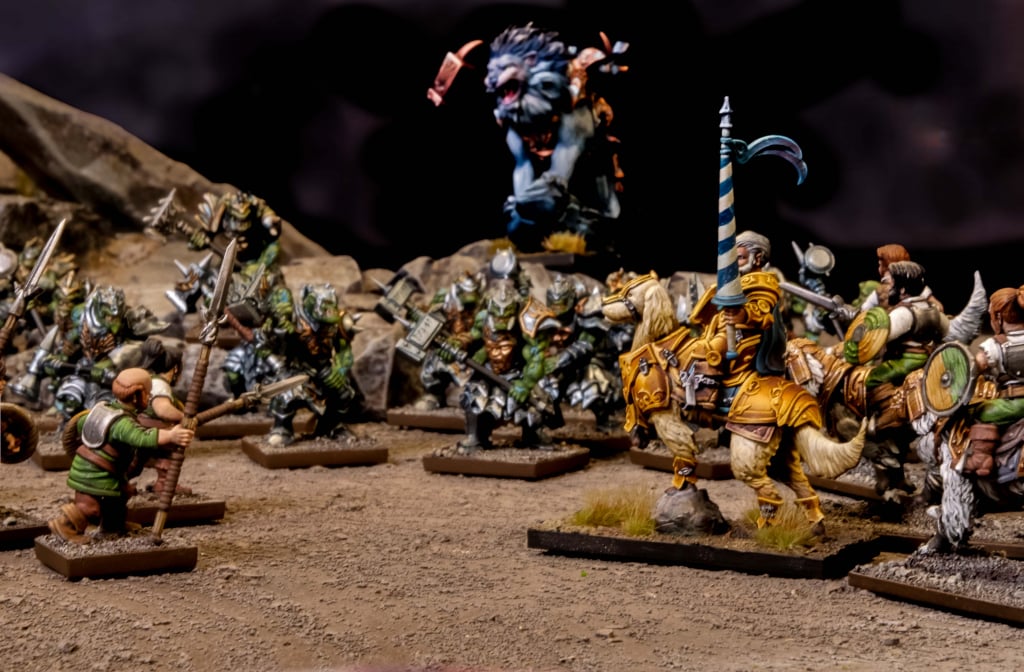
Breaking the Rules
There are of course ways around terrain and special exceptions to the normal movement rules. Many units in the game have special rules to mitigate some of the negative modifiers of terrain or ignore them completely!
Pathfinder and Strider are two very powerful Special Rules in terrain mitigation, and they work similarly but have crucial differences that can trip new players up. Pathfinder makes it so a unit suffers no movement penalties for Difficult Terrain and makes it so units are not Hindered when making a Charge through Difficult Terrain. Strider means a unit is never Hindered when making a Charge through Difficult Terrain or Obstacles. Pathfinder is good for opening all movement options while mitigating Hindered charges through, specifically, Difficult Terrain. Strider is good for ensuring no charges are Hindered!
Of course, if you want to ignore terrain altogether when moving, why not just Fly over it? Fly allows units to move over anything on the board, including through (over) units when Charging. It must still end its Order clear of Blocking Terrain and will be Hindered if ending its move within or touching Difficult Terrain and Obstacles, but not if it moved or pivoted over them during the move. Only consider terrain with a unit that has Fly based on where they land.
Nimble units are particularly agile, able to reform quickly as they move across the battlefield. Units with this Special Rule can execute a single extra pivot up to 90 degrees while carrying out any movement Order, except Halt. This is particularly useful when carrying out an At the Double, Back, or Sidestep Orders which don’t normally allow a pivot!
<troll>Some units are particularly terrifying and have multiples of these rules. The Greater Air Elemental can Fly, with Pathfinder, and is Nimble too. Imagine the possibilities.</troll>
Movement is massively important, and the game gives you a boatload of tools to navigate a battlefield and plan a strategy around your army. You’re now armed with tons of info to march your legions forth and dominate your opponents!
